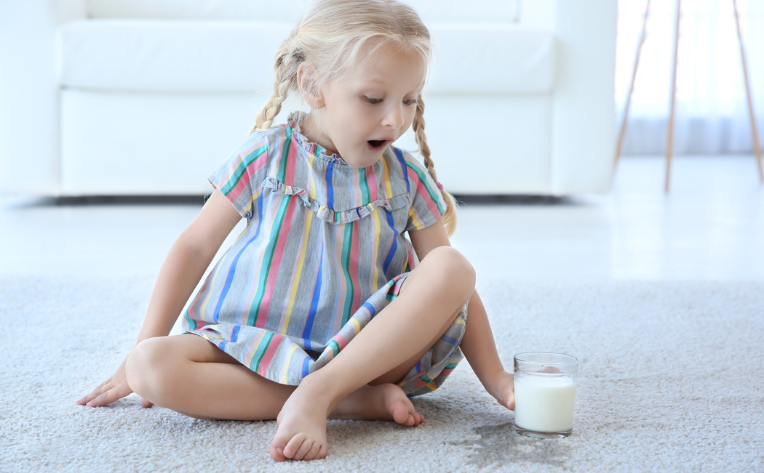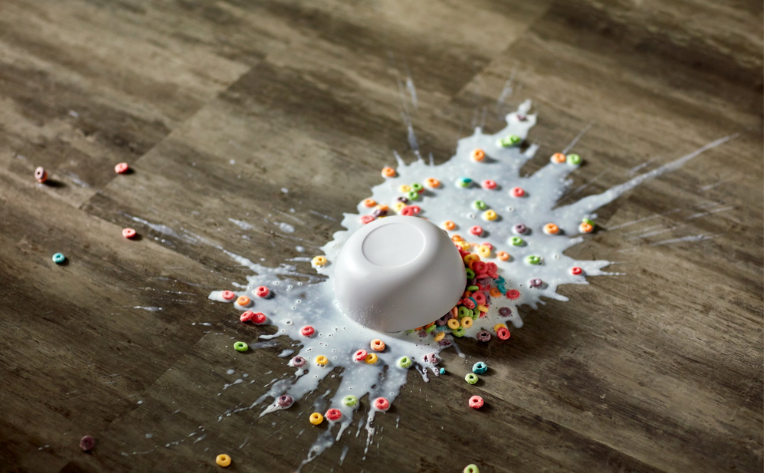
When it comes to selecting the right flooring for your home, it's crucial to understand the distinction between waterproof and water-resistant options. Whether you're savoring the serenity of your patio under both light rain and heavy downpours or you have a lively household prone to occasional spills, your selection of waterproof materials holds the power to profoundly influence the durability and lifespan of your floors.
Waterproof flooring is designed to withstand not only minor liquid spills but also more substantial accidents like floods, offering a layer of protection and peace of mind for homeowners. On the other hand, flooring made with water-resistant material is not fully waterproof and is only meant to handle small spills as long as they are promptly attended to, but it has its limitations when it comes to resistance to extended moisture exposure.
In this guide, we dive deeper into the differences between these two types of flooring and highlight popular materials like water-resistant or waterproof laminate floors, luxury vinyl, hardwood, and SPC (Stone Plastic Composite).
Armed with this knowledge, you can make an informed choice that will not only enhance the aesthetics of your home but also ensure that your floors can withstand potential disasters associated with water exposure.
Waterproof and water-resistant flooring serve distinct purposes in protecting your floors against moisture-related issues. It's essential to comprehend their differences:
Waterproof Flooring: Waterproof floors are highly durable and can withstand not only liquid spills but also more significant accidents like floods. These floors offer an extra layer of protection and peace of mind for homeowners.
Water-Resistant Flooring: Water-resistant flooring is designed to handle minor spills when promptly addressed. They provide something like a water-resistant jacket against moisture but have limitations when it comes to substantial water exposure.
Vinyl and laminate flooring share similarities in surface appearance, making them easily confused. However, they differ significantly when it comes to their ability to resist water damage.
Vinyl Flooring: Most vinyl floors, including luxury vinyl and luxury vinyl plank floors, are waterproof. This makes them an excellent choice for areas prone to moisture exposure.
Laminate Flooring: Laminate flooring, containing softwood fibers, offers water resistance that can withstand small spills and significant wear and tear. However, water-resistant laminate is still susceptible to buckling and damage from excessive water exposure, such as flooding.
Traditionally, hardwood flooring was not waterproof. However, advancements in technology have revolutionized the hardwood flooring industry. Now, this means that you can enjoy the timeless elegance and natural beauty of real hardwood floors while having the peace of mind that they are impervious to water damage.
These innovative solutions often involve special treatments and finishes that provide a protective barrier against moisture. Such treated hardwood not only withstands spills and splashes but can also be installed in areas like kitchens and bathrooms where water exposure is more common.
As with any flooring material, the performance and longevity of waterproof hardwood flooring depends on proper installation and maintenance. While it is more water-resistant than traditional hardwood, it may not be as waterproof as alternative options like luxury vinyl.
SPC flooring, also known as Stone Plastic Composite Flooring, is a term often used interchangeably with vinyl plank flooring. Here's why it's a noteworthy option:
SPC Flooring: SPC flooring has a thicker core, making the planks sturdier and more akin to real wood in both appearance and feel.
In your quest for the perfect flooring, we understand that questions often arise when it comes to the crucial choice between water-resistant and waterproof options.
To provide clarity and guidance, we've assembled a comprehensive list of frequently asked questions (FAQs) to help you navigate the waters and make an informed decision that suits your unique needs and style.
Among the various flooring options, luxury vinyl flooring is typically considered the most waterproof. This flooring is highly resistant to water penetration, making it an excellent choice for areas prone to moisture, like bathrooms, kitchens, and basements. Keep in mind that even though this flooring is highly waterproof, proper installation and maintenance are still crucial to ensuring long-lasting performance.
While no flooring material is truly 100% waterproof, some, like SPC (Stone Plastic Composite) vinyl, come close to achieving this level of water resistance. This is because SPC vinyl flooring is built with a dense core that repels water effectively and can withstand spills and moisture better than most alternatives.
Both waterproof laminate and vinyl have their advantages and may be suitable for different needs. Waterproof laminate is a hybrid option, offering the look of hardwood with improved water resistance. On the other hand, waterproof vinyl, particularly SPC, provides excellent water resistance, durability, and versatility.
Waterproof vinyl is often favored for areas with high moisture levels, while waterproof laminate can be an excellent choice for those seeking a balance between aesthetics and water resistance. The choice between the two ultimately depends on your preferences and specific lifestyle requirements.

Choosing between waterproof and water-resistant flooring is a crucial decision that impacts the beauty and functionality of your home. Prioritize quality and durability to ensure that your floors not only stand the test of time but also remain resilient in the face of potential water-related mishaps. With a wealth of flooring options available, you can find the perfect durable water-repellent fit for your home, whether you are looking for elegance, affordability, or practicality.
Discover even more wonderful, durable flooring choices at your local Flooring Canada store today. Your journey to finding the ideal flooring for your home begins with informed choices, and your local experts are there to guide you every step of the way.